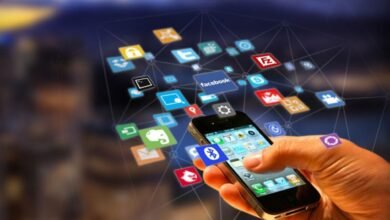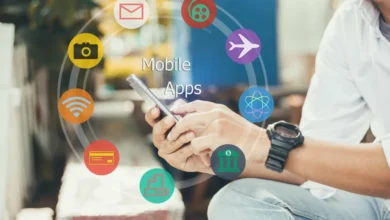Introduction to Future Mobile Technology
Future technology for mobile devices is constantly developing, potentially transforming drastically how we contend with everything. As we enter the twentieth century, mobile technology advances can revolutionize many aspects of our lives, including interaction, leisure, healthcare, and education.
Emerging developments like 5G connection, additional reality (AR), and artificial intelligence (AI) deliver unlimited opportunities.
This opening sets the stage for exploring the transformative potential of coming mobile technology and its profound impact on culture, paving the way for a more related and technologically progressive future.
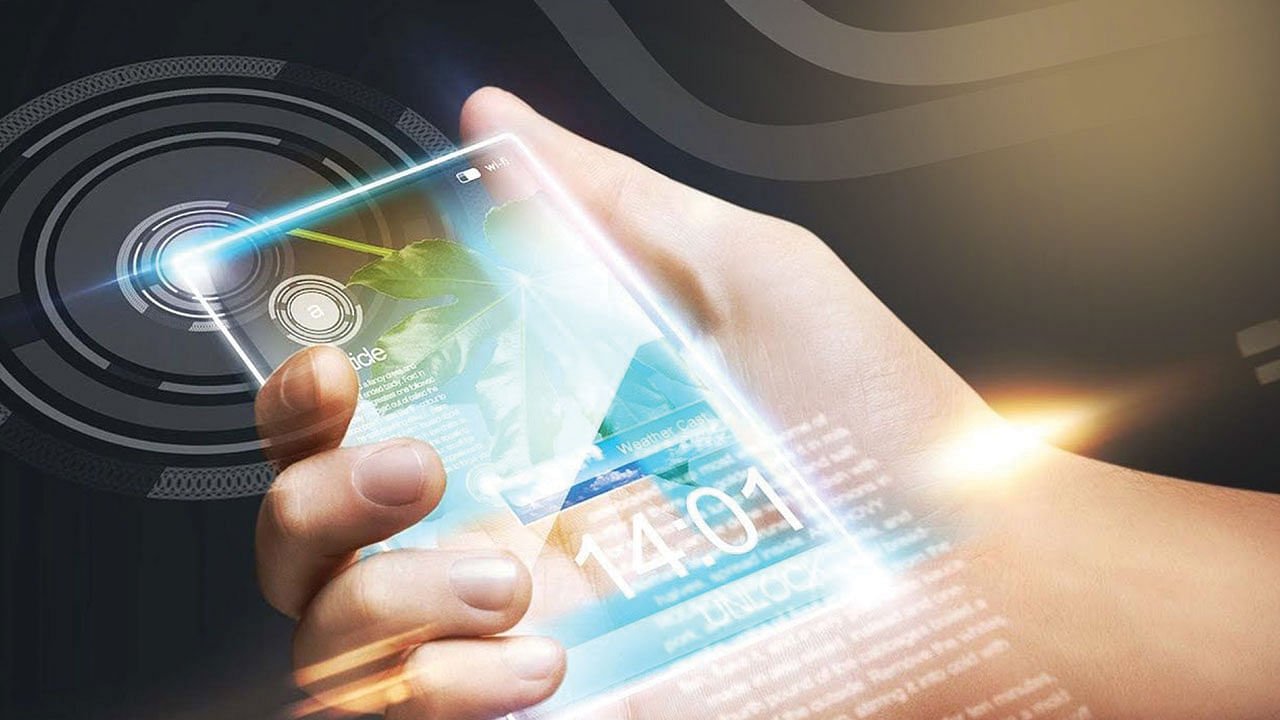
Emerging Trends in Future Mobile Technology
In the rapidly evolving terrain of future mobile technology, several directions are emerging, including 5G connectivity, augmented reality (AR), virtual reality (VR), and the integration of unnatural brightness.

-
5G connectivity and its impact
The debut of the 5G association symbolizes a watershed juncture in the history of mobile technology, resulting in unrivaled speed, reliability, and answer. With its rapid data information and low latency, 5G is expected to transform various initiatives, including transportation, healthcare, and enjoyment.
The significance of 5G extends beyond improved download speeds; it facilitates the seamless integration of technologies such as AR (augmented reality ) and virtual reality (VR), enables real-time transmission for autonomous cars, and opens up new possibilities for remote medical treatments and telemedicine. 5G connection is suspended to conduct in a new age of structure and connectivity worldwide.
-
Virtual reality as well as augmented reality
Virtual and augmented reality are groundbreaking technologies transforming how we smell and interact with our environment. AR adds a digital range to the real world, enriching our surroundings with real-time virtual features.
At the same time, VR immerses people in completely virtual realms via technological headgear or electronic devices.
AR and VR have transformative applications across diverse initiatives, including gaming, education, healthcare, and architecture.
From immersive gaming experiences to virtual sports simulations for medical specialists, the potential for AR and VR to revolutionize myriad fields is vast, swearing new avenues for imagination, education, and examination.
-
Internet of Things (IoT) integration
Incorporating the Internet of Things (IoT) into prospective mobile technology suggests a new generation of connectivity and comfort.
IoT refers to the network of related machines infused with detectors, software, and other technologies that permit them to transfer and alter data.
In mobile technology, IoT integration allows seamless communication between smartphones, wearables, home devices, and automobiles.
This interconnected ecosystem facilitates automation, remote monitoring, and data-driven insight, improving efficiency and convenience in various aspects of daily life.
From elegant homes and corresponding cars to industrial mechanization and healthcare monitoring, IoT integration upholds huge prospects to revolutionize how we interact with our surroundings.
-
Artificial Intelligence (AI) advancements
Artificial Intelligence (AI) passages in future mobile technology signify a leap forward in creation and capability. AI algorithms and machine learning techniques are increasingly merged into mobile devices, enabling them to perform tasks that traditionally require mortal intelligence.
From voice assistants like Siri and Google Assistant to personalized recommendations in apps and predictive text input, AI enhances user experience and efficiency.
Moreover, AI-powered parts such as facial recognition, natural language processing, and real-time translation are becoming commonplace, revolutionizing contact and interaction.
As AI continues to evolve, its integration into mobile technology swears even more brilliant, intuitive, and personalized user adventures.
Applications of Future Mobile Technology
Future mobile technology boasts multiple applications across various sectors, including healthcare, teaching, automotive, and amusement, revolutionizing how we live, function, and interact with technology.
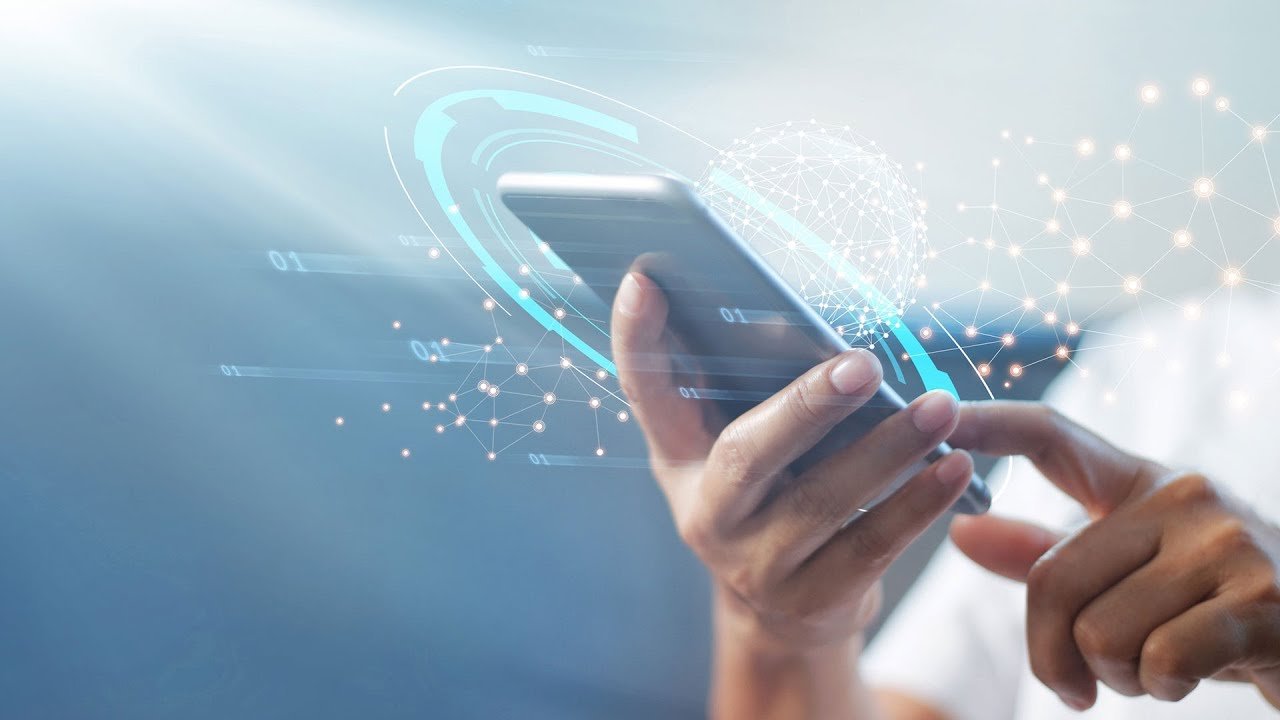
-
Healthcare
In healthcare, future mobile technology is catalyzing transformative changes and revolutionizing patient care and medical practices.
Mobile applications and wearable gadgets with advanced sensors enable remote patient monitoring, facilitating aggressive healthcare management and early detection of health issues.
Telemedicine venues leverage mobile technology to provide virtual consultations and remote diagnosis, expanding access to healthcare services regardless of geographical constraints.
Moreover, mobile health apps empower individuals to track their fitness, observe vital signs, and handle chronic conditions effectively, promoting proactive wellness administration.
In essence, future mobile technology is reshaping the healthcare topography, enhancing accessibility, efficiency, and personalized care delivery.
-
Education
Future mobile technology revolutionizes instruction by providing innovative tools and resources that sweeten learning experiences. Mobile devices and educational apps offer interactive lectures, virtual classrooms, and personalized learning ventures tailored to individual student needs.
Additionally, mobile technology enables access to a vast repository of academic resources, including e-books, videos, and online courses, cracking down conventional barriers to learning.
Moreover, collaborative learning platforms and communication tools help seamless exchange between students and educators, fostering a dynamic and engaging learning atmosphere.
In essence, future mobile technology empowers learners of all ages to access rate education anytime, anywhere, and at their rate.
-
Automotive industry
In the automotive industry, future mobile technology pushes a paradigm shift towards related and freed vehicles. Mobile technology enhances vehicle security, efficiency, and user background.
Progressive driver-assistance systems (ADAS) leverage mobile connectivity to provide real-time traffic updates, navigation help, and wreck avoidance features, improving overall driving ability and safety.
Moreover, mobile apps enable remote vehicle monitoring, diagnostics, and managing, letting users lock/unlock doors, start engines, and locate vehicles remotely.
As the automotive industry resumes to welcome future mobile technology, we expect to see further progress in-vehicle connectivity, mechanization, and electrification, shaping the future of auto.
-
Entertainment
In entertainment, future mobile technology is reshaping how we consume and interact with media. Portable machines are transportable recreation hubs, offering entry to streaming assistance, gaming outlets, and social media webs.
Augmented reality (AR) and virtual reality (VR) technologies sweeten game meetings while obfuscating the divide between genuine and virtual empires.
Moreover, mobile apps and social media platforms enable content developers to reach a global audience, promoting imagination and collaboration.
From immersive gaming happenings to on-the-go streaming of flicks and music, prospective mobile technology redefines enjoyment, presenting endless options for engagement and pleasure.
Challenges and Prospects
Navigating the geography of future mobile technology gives both challenges and options. The journey forward is filled with complexities and possibilities, from privacy and security cases to environmental sustainability and economic growth.

-
Privacy and security concerns
Privacy and security concerns loom big in the kingdom of future mobile technology. As our reliance on mobile gadgets rises, the risk of unauthorized admission to acute data and lawfully binding knowledge grows.
Foreseeable hazards range from data breaches and identity theft to intrusive surveillance and cyberattacks. Additionally, it raises concerns about personal data’s clarity, permission, and ethical usage.
Managing these concerns requires robust cybersecurity measures, strict privacy laws, and heightened awareness among users about protecting their digital essences in an increasingly interconnected world.
-
Environmental impact
The environmental impact of future mobile technology is an urgent concern today. Rapid technological improvement results in frequent upgrades and disposal of electronic devices, gathering electronic waste (e-waste).
The manufacturing operations and energy consumption associated with producing mobile machines also contribute to carbon emissions and environmental degradation.
Managing this issue requires sustainable practices throughout the product lifecycle, including responsible sourcing of cloths, energy-efficient manufacturing functions, and promoting recycling and circular economy industries.
We can strive towards a more tolerable and eco-friendly digital fortune by mitigating the environmental effects of future mobile technology.
-
Employment opportunities
Future mobile technology presents a myriad of work opportunities across different sectors. As technology grows, there is a growing market for skilled professionals in software products, data investigation, cybersecurity, and digital marketing.
Moreover, increasing mobile apps and platforms creates new roads for freelance work and entrepreneurship, enabling people to monetize their skills and creativity.
Additionally, integrating mobile technology in enterprises like healthcare, education, and automotive opens up opportunities for specialized roles in mobile app development, user knowledge design, and tech support.
Future mobile technology tools, job design, and economic growth offer diverse career pathways for individuals with various skill sets.
Impact on Society
The impact of future mobile technology on civilization is profound, influencing how we communicate, access information, and interact with the world, shaping social dynamics and cultural standards in remarkable ways.
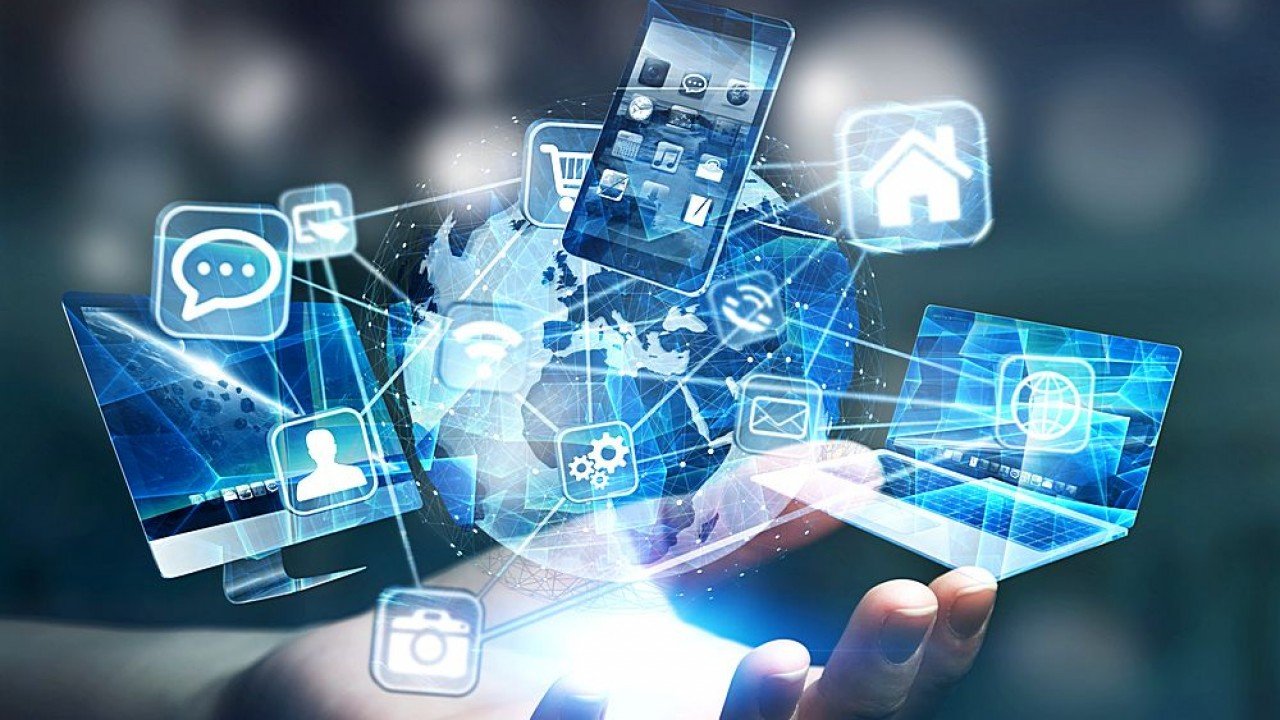
-
Connectivity and communication
Connectivity and communication are at the soul of the societal result of future mobile technology. Mobile machines are potent tools that bridge geographical barriers, allowing instant communication and transnational cooperation.
Whether through text messages, voice calls, or video conferencing, mobile technology enables real-time interaction, fostering closer connections between individuals and societies.
Moreover, social media platforms and messaging apps deliver avenues for sharing ideas, opinions, and experiences, shaping public discourse and compelling social change.
In essence, the pervasive connectivity offered by forthcoming mobile technology enhances communication channels, enriches affinities, and fosters a more interconnected and globally aware society.
-
Accessibility to information
Accessibility to information is revolutionized by future mobile technology, democratizing learning and empowering individuals worldwide. With mobile devices at our fingertips, we have instant access to vast information, from academic resources to news updates and cultural insights.
Mobile apps and search machines enable users to explore diverse topics, learn new skills, and stay knowledgeable about global events, regardless of background.
Furthermore, mobile technology breaks down traditional barriers to information access, authorizing marginalized communities, promoting literacy, and encouraging a more inclusive society where knowledge is freely available and easily unrestricted to all.
-
Economic implications
The economic importance of future mobile technology is far-reaching, shaping industries, employment patterns, and need dynamics. Mobile technology promotes economic expansion by encouraging innovation, boosting efficiency, and opening fresh company options.
With the rise of mobile commerce (m-commerce), firms may reach clients anytime and anywhere, increasing market reach and revenue. Moreover, the app economy generates revenue streams for creators and entrepreneurs, while mobile advertisement creates lucrative market opportunities.
Additionally, mobile technology boosts remote work and freelancing, enabling people to participate in the digital economy irrespective of geographical limitations. Overall, future mobile technology catalyzes economic change, pushing innovation and entrepreneurship in the global marketplace.
Future Predictions and Speculations
Future predictions and speculations concerning mobile technology encompass many chances, from the proliferation of wearable devices to advancements in quantum computing and biometric authentication.

-
Wearable technology
Wearable technology represents an essential aspect of future mobile innovation, seamlessly blending into our daily lives to enhance amenities and functionality.
From smartwatches and vigor trackers to augmented reality (AR) glasses, wearable gadgets offer a myriad of functionalities, including health monitoring, activity hunting, and real-time notifications.
These devices serve as confidential assistants, providing valuable insights into our health and well-being while keeping us connected to the digital world.
As wearable technology continues to develop, we expect to see further integration with mobile devices, opening new possibilities for personalized backgrounds and enhancing our overall quality of life.
-
Quantum computing
Quantum computing is at the cutting edge of future mobile technology, delivering unrivaled computational capacity and groundbreaking advances in processing information.
Unlike conventional gadgets that employ binary bits, quantum computers use quantum bits (qubits) to do confusing computations at an unprecedented rate.
This groundbreaking technology can potentially transform industries such as encrypting data, drug discovery, and artificial intelligence by addressing complicated problems now unsolvable with standard computers.
As analysis and development in quantum computing resume, we anticipate significant breakthroughs that will reshape the landscape of mobile technology and unlock new frontiers in scientific findings and technological innovation.
-
Biometric authentication
Biometric authentication is a cornerstone of future mobile technology, revolutionizing security standards and user assurance processes.
Biometric authorization, which uses distinctive physical characteristics such as fingerprints, facial features, and iris prints, provides a safe and easy way to verify user identification.
This technique improves device security by combining standard passwords and PINs with more secure, difficult-to-spoof authentication methods.
With the general adoption of biometric detectors in smartphones and other portable gizmos, users can open their tools, qualify trades, and access showed data with effortless communication or peek, streamlining authentication methods while securing robust defense bars.
Conclusion
In conclusion, the future of mobile technology holds immense promise, shaping a world that is more connected, efficient, and innovative than ever before.
The possibilities are boundless, from the transformative potential of 5G connectivity and augmented reality to the revolutionary advancements in quantum computing and biometric authentication.
However, as we steer this technological landscape, handling challenges such as privacy concerns, environmental sustainability, and equitable access is imperative.
By embracing the possibilities presented by future mobile technology while mitigating its challenges, we can pave the way for a future inclusive, tolerable, and driven by the power of creation.
Unique FAQs:
How does future mobile technology impact privacy and security?
The proliferation of interconnected devices raises concerns about data privacy and cybersecurity. Users must protect their information and adopt secure practices to mitigate potential risks.
What role does 5G connectivity play in future mobile technology?
5G connectivity enables faster data speeds, lower latency, and greater capacity, facilitating the growth of interconnected devices and enabling innovative applications such as augmented reality, virtual reality, and the Internet of Things.
How can future mobile technology contribute to environmental sustainability?
Future mobile technology can contribute to environmental sustainability by adopting green technology solutions, responsible manufacturing practices, and promoting recycling and reuse of electronic devices.
What are some challenges faced by future mobile technology?
Challenges faced by future mobile technology include:
Addressing privacy and security concerns.
Mitigating environmental impact.
Ensuring equitable access to technology for all segments of society.

